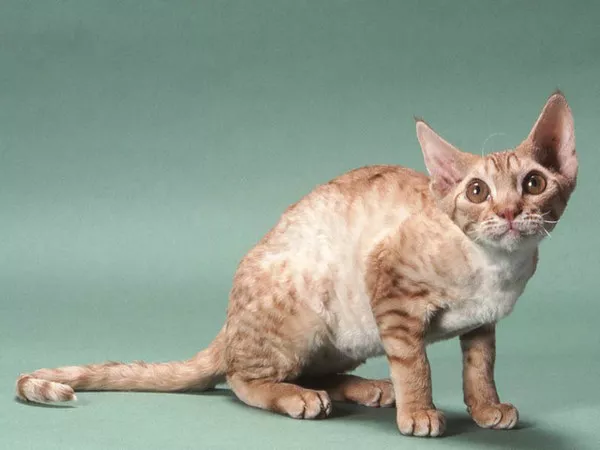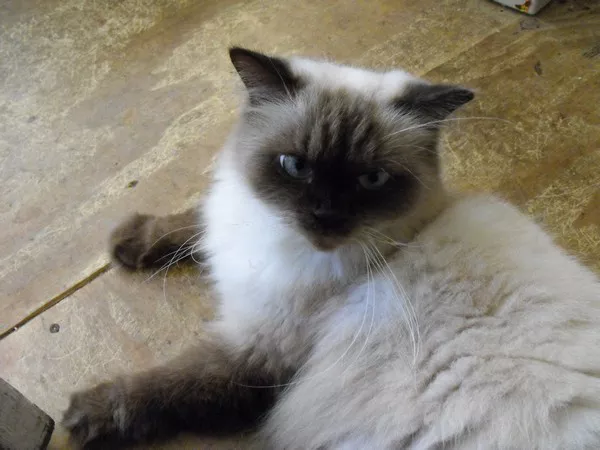Devon Rex cats are known for their playful and affectionate nature, but like any pet, they may exhibit behaviors that can be concerning or problematic for their owners. One such behavior is biting, which can range from gentle nibbling to more aggressive biting. Understanding why your Devon Rex cat may be biting you is the first step in addressing this behavior and finding solutions to prevent it from happening.
Potential Reasons for Biting
There are several reasons why your Devon Rex cat may be biting you, and it’s essential to consider these factors before implementing training strategies:
Playfulness: Devon Rex cats are highly energetic and playful, and they may bite as part of their play behavior. In their minds, biting may be a form of interaction and exploration, especially if they were not properly socialized as kittens.
Attention-seeking: Like many cats, Devon Rex cats crave attention from their owners. If they feel neglected or overlooked, they may resort to biting as a way to get your attention or initiate interaction.
Fear or anxiety: Cats may bite when they feel threatened or anxious, either due to unfamiliar situations, loud noises, or changes in their environment. Biting may be a defensive reaction to perceived threats.
Redirected aggression: Sometimes, cats may redirect their aggression towards their owners if they become overstimulated or frustrated during play or interaction with other pets.
Medical issues: In some cases, biting behavior may be a sign of underlying medical issues, such as dental problems, pain, or discomfort. If your Devon Rex cat’s biting behavior is sudden or accompanied by other symptoms, it’s essential to consult with a veterinarian to rule out any medical issues.
Training Tips to Address Biting Behavior
Once you understand the potential reasons behind your Devon Rex cat’s biting behavior, you can implement training strategies to address and modify this behavior effectively. Here are some training tips to help you discourage biting and encourage more appropriate behavior:
Provide appropriate outlets for play: To channel your Devon Rex cat’s energy and playfulness in a positive direction, provide plenty of interactive toys and opportunities for play. Engage in regular play sessions with toys such as feather wands, laser pointers, or interactive puzzle toys to satisfy their need for mental and physical stimulation.
Use positive reinforcement: When interacting with your Devon Rex cat, reinforce desirable behaviors, such as gentle play and calm demeanor, with praise, treats, or affection. Positive reinforcement encourages your cat to repeat these behaviors while discouraging biting and other unwanted behaviors.
Set boundaries: Establish clear boundaries and rules for interaction with your Devon Rex cat. Encourage gentle play and discourage rough behavior by withdrawing attention or ending play sessions if biting occurs. Be consistent in enforcing these boundaries to reinforce desired behavior over time.
Redirect attention: If your Devon Rex cat begins to bite during play or interaction, redirect their attention to an appropriate toy or activity. Encourage them to engage with the toy instead of your hands or feet, reinforcing the idea that biting is not acceptable behavior.
Avoid punishment: While it may be tempting to reprimand your Devon Rex cat for biting, avoid using punishment as a training method. Punishment can lead to fear, stress, and aggression, potentially exacerbating the biting behavior or damaging your relationship with your cat.
Provide environmental enrichment: Enrich your Devon Rex cat’s environment with opportunities for exploration, stimulation, and relaxation. Offer vertical spaces, such as cat trees or shelves, for climbing and perching, as well as cozy hiding spots and comfortable bedding for rest and relaxation.
Monitor interactions with other pets: If you have multiple pets in your household, monitor their interactions closely to prevent conflicts that may lead to redirected aggression or territorial behavior. Provide separate spaces and resources for each pet to reduce competition and minimize stress.
Consult with a professional: If your Devon Rex cat’s biting behavior persists despite your efforts to address it, consider seeking guidance from a professional animal behaviorist or veterinarian. They can assess your cat’s behavior and provide personalized recommendations and training strategies to address underlying issues effectively.
Conclusion
Biting behavior in Devon Rex cats can be challenging to address, but with patience, consistency, and positive reinforcement, you can modify this behavior and foster a strong bond with your feline companion. By understanding the reasons behind your cat’s biting behavior and implementing appropriate training techniques, you can encourage more desirable behaviors and create a harmonious relationship with your Devon Rex cat. Remember to be patient and persistent in your training efforts, and seek professional guidance if needed to ensure the well-being and happiness of your beloved pet.
























